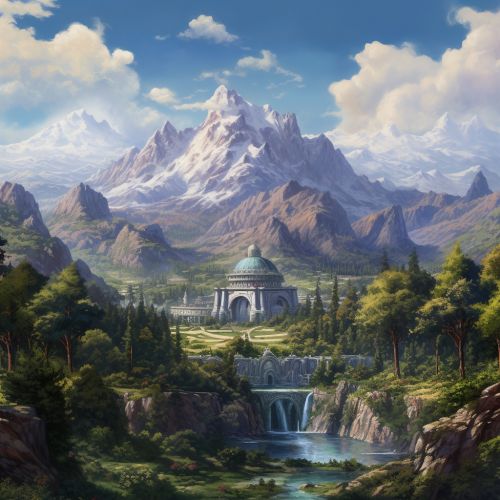Ancient Greek religion and mythology
Origins and Development
The Ancient Greek religion is a polytheistic system of beliefs and rituals that emerged in the Eastern Mediterranean during the Bronze Age, around 3000 BCE. The religion was centered around a pantheon of gods and goddesses, each with their own distinct personalities, attributes, and domains of influence. The most prominent of these deities were the Twelve Olympians, who were believed to reside on Mount Olympus, the highest peak in Greece.
The Ancient Greek religion was not a codified or organized religion in the way that many modern religions are. There was no central authority or religious text, and beliefs and practices varied widely from region to region and over time. However, certain common elements can be identified, including the worship of a pantheon of gods, the performance of rituals and sacrifices, the belief in an afterlife, and the use of myth to explain natural phenomena and to provide moral and social lessons.


Gods and Goddesses
The Ancient Greek pantheon was headed by Zeus, the king of the gods, who was associated with the sky, thunder, and justice. Other major deities included Hera, the queen of the gods and the goddess of marriage and childbirth; Poseidon, the god of the sea; Demeter, the goddess of agriculture; Athena, the goddess of wisdom and warfare; Apollo, the god of music, prophecy, and the sun; Artemis, the goddess of the hunt and the moon; Ares, the god of war; Aphrodite, the goddess of love and beauty; Hephaestus, the god of fire and metalworking; Hermes, the messenger of the gods and the god of trade and thieves; and Dionysus, the god of wine and revelry.
In addition to these major deities, the Ancient Greek pantheon included a vast array of minor gods, goddesses, and other supernatural beings, including nymphs, satyrs, and centaurs. These beings were often associated with specific locations or natural phenomena, and were worshipped locally.
Rituals and Practices
Rituals were a central aspect of Ancient Greek religion. These included sacrifices, prayers, processions, and festivals, which were conducted at temples and other sacred sites. The most common form of sacrifice was the burning of an animal, usually a domesticated animal such as a sheep or a cow, on an altar. The gods were believed to be nourished by the smoke of the sacrifice, and in return, they would bestow favor upon the worshippers.
Prayers were another important aspect of Ancient Greek religious practice. These were often recited in a formal, poetic language, and were used to ask the gods for help or to thank them for their blessings. Prayers were often accompanied by offerings, such as food, drink, or valuable objects.
Festivals were held throughout the year to honor the gods and to mark important events in the agricultural calendar. These festivals often involved music, dancing, athletic competitions, and dramatic performances, and were a major social event for the Ancient Greek community.
Mythology
Ancient Greek mythology is a body of stories and legends that were used to explain the world and to teach moral and social lessons. These myths often featured the gods and other supernatural beings, and were set in a mythical past that was distinct from historical time.
One of the most important sources of Ancient Greek mythology is the works of Homer, a poet who is believed to have lived in the 8th century BCE. His epic poems, the Iliad and the Odyssey, tell the stories of the Trojan War and its aftermath, and feature many of the gods and heroes of Ancient Greek mythology.
Another important source is the works of Hesiod, a poet who is believed to have lived around the same time as Homer. His works, the Theogony and the Works and Days, provide a detailed account of the origins of the gods and the world, and offer moral and practical advice for living a good life.
Legacy
The Ancient Greek religion and mythology have had a profound influence on Western culture. The gods and heroes of Ancient Greek mythology have been a source of inspiration for artists and writers throughout history, and many of the stories and themes have become archetypes in Western literature and art.
The Ancient Greek religion also had a significant influence on the development of Western philosophy. Many of the early Greek philosophers, such as Socrates, Plato, and Aristotle, were deeply influenced by the religious and mythological beliefs of their time, and their works often reflect this influence.
